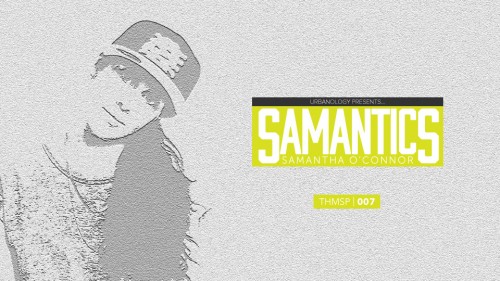It was their first time meeting. They sat there. Two journalists perched across the table from one another on benches in a Queen Street coffee shop, sipping tea and trading stories about their craft and the gems of knowledge their four years and $40,000 journalism degree bought them.
One, a one woman army of the streets and the other, a trap princess. Both women varied in age, experience and background, yet shared the same passions. They found themselves so embedded into Toronto’s hip-hop community as members of the media that they basically lived in concert venues, wore press passes like chains and spoke in Q&As.
But the two writers, who valued themselves on things like journalistic integrity, fact-checked articles and support for the local scene, found themselves in an industry lacking those qualities. There was so much they wanted to do for their culture, so much they wanted to write, so much progress they wanted to see happen, but so much social politics in the way of it all.
Their conversation went something like this:
Trap Princess: I’m from Vancouver so I got to know the city through the music industry and what I’ve seen is there is a lot of social politics that happens in Toronto and there’s a big clash between people in the community who are pushing for the culture side of it and the people that are in it for the business/industry side of it. I feel like the clash between the two sides is what’s causing the hip-hop community in Toronto to not progress as much as it could be, because I see so much potential here.
I didn’t go to school thinking I was going to be a hip-hop journalist or want to be Karen Civil or Vanessa Sutton; I had the hopes of entering the hip-hop community to give back.
One Woman Army: I didn’t go to school thinking I was going to be a hip-hop journalist or want to be Karen Civil or Vanessa Sutton; I had the hopes of entering the hip-hop community to give back. My mission was always to support Toronto, but the further I got into the industry, the more I began to see what it was.
Trap Princess: Who the media is in general is very blurred, because you do have people that call themselves bloggers and be like, “Hey, I sat down with so-and-so, here’s five questions and here is what they said and then there’s people who really blog and will do that and then there’s people who will just basically copy and paste with a video and there is no real progress that happens there. What do you think the so-called media should be accountable for on their platforms?
One Woman Army: Most times, the media themselves are looking for hits and to make money and revenue. I think that people need to give local acts a chance and look for the story. Some of the best interviews I’ve ever done have been with local acts in just really random places. I interviewed The 6th Letter in a barbershop while he got his haircut. I interviewed Jimmy B at the ball court where he grew up. That’s what makes this industry move forward. I don’t give a shit if it doesn’t make me look like I’m some big important journalist, because anyone can get an interview with these artists. It’s about the story these artists have, that’s what journalists should look for. There’s a story in everything. These are our people. This is our talent. They’re more than just a post; get to know the people behind the music. You may be able to break an artist. People may read that and it may be an artist that no one knows about, they read your interview and find something intriguing about it. We have a platform. We have a voice.
Trap Princess: I saw Jimmy B at the Smokers Club and that was the first time I saw him and then I read your article and that’s what made me want to pursue an interview with him, so you’re very right. Just the fact that you took him to a place and you asked him why he chose this place. Anything that is timeless and effective will always have an emotional connection with the reader or the consumer. What [other blogs do] is basically a copy and a paste and that’s it. I’m still wondering why we’re letting [these platforms] supposedly pass as pushing the culture when they are not providing something like bringing Jimmy to a basketball court.
One Woman Army: It’s the same as everything in the industry, a lot of people think that quantity is more important than quality. But I don’t read blogs. I read articles and I watch interviews. I’ve always been on the journey of finding the story in everyone. The hip-hop that I listen to tells stories and I look for the correlation to it in my own life. That’s what makes it relevant. Getting that exclusive, that’s what keeps me hungry.
Trap Princess: In our defense, a lot of artists in Toronto are resentful and angry and think that there is no one supporting and I sometimes feel like that is unfair, because there are people like you and I that are really going out of our way and sometimes we aren’t even getting paid to write these things.
One Woman Army: You just have to grind it out for what you believe in and why you’re here in the first place.
Trap Princess: So overall, the hip-hop community in Toronto is almost non-existent if we are not working together to progress.
One Woman Army: That’s why I think it’s a scene and not an industry.




Comments are closed.